Mandala Blu-ray Movie
HomeMandala Blu-ray Movie 
Mandara / 曼陀羅Arrow | 1971 | 132 min | Not rated | No Release Date
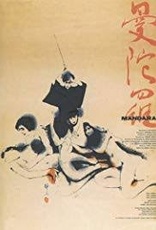
Price
Movie rating
6.9 | / 10 |
Blu-ray rating
| Users | 0.0 | |
| Reviewer | 3.0 | |
| Overall | 3.0 |
Overview
Mandala (1971)
A savage work that explores human sexuality and its articulations with political stances and religion: Two couples of university students swap their partners, one, Yukiko and Shinichi experienced and one, Hirochi and Yasuko unmarried and first time in an isolated motel. Later, at the seaside one of them is attacked by two maniacs, who leave the husband unconscious and rape the woman. After the event that was supposed to be traumatic, the attacked couple find themselves interested in the two aggressors and the gratuitousness of their act, and goes to look for them in the surroundings of the motel. They discover that they are part of a sect that has sexual freedom and self-support as slogans. At first reluctant, but soon giving way, the couple end up joining the secret sect and isolate themselves from the world, but things get complicated when the other couple decides to look for them.
Starring: K˘ji Shimizu, Akiko Mori (I), Ry˘ Tamura, Hiroko Sakurai, Shin KishidaDirector: Akio Jiss˘ji
| Foreign | Uncertain |
| Drama | Uncertain |
| Erotic | Uncertain |
Specifications
Video
Video codec: MPEG-4 AVC
Video resolution: 1080p
Aspect ratio: 1.85:1
Original aspect ratio: 1.85:1
Audio
Japanese: LPCM Mono
Subtitles
English
Discs
Blu-ray Disc
Single disc (1 BD)
Playback
Region A (B, C untested)
Review
Rating summary
| Movie | 3.0 | |
| Video | 3.5 | |
| Audio | 3.5 | |
| Extras | 2.0 | |
| Overall | 3.0 |
Mandala Blu-ray Movie Review
Reviewed by Jeffrey Kauffman August 18, 2019 Note: This film is available as part of
Akio Jissoji: The Buddhist Trilogy.
This provocative triptych by Akio Jiss˘ji may have attained the sobriquet The Buddhist Trilogy, but that may in turn beg the question of
whether Jiss˘ji might be subliminally proferring Heraclitus and/or the Marquis de Sade as proponents of the religion. Hercalitus famously
(supposedly) proclaimed that
itĺs impossible to step in the same river twice, giving philosophers a nice visual trope for the evanescence of life, something Japanese New Wave
expert David Desser, who is on hand here as a commentator, mentions is a key element of Jiss˘jiĺs work. But as Desser also gets into in one of his
introductions to the films which are
included as bonus features, thereĺs also a fairly kinky sex aspect to these films that some may feel arguably places them pretty squarely in what
Desser refers to
as the ôRoman pornoö genre. That may not mesh especially well with the vaunted Buddhist concept of non-attachment, since several
pairs of
lovers in these films are very attached to each other (so to speak), in sometimes shocking ways. The Buddhist Trilogy was
released courtesy of
the Art Theater Guild, a production house noted for its contributions to the Japanese New Wave, and as Desser also gets into, some of Jiss˘ji's
stylistic flourishes at least if not always all of his content "qualify" him for membership in that movement. One of the kind of funny things about
Jiss˘ji, though, is that for many
Western fans, and for fans of another kind of Japanese entertainment, he'll be forever celebrated as the creator of Ultraman, which in and of itself probably
speaks as well as anything to Jiss˘ji's versatility.
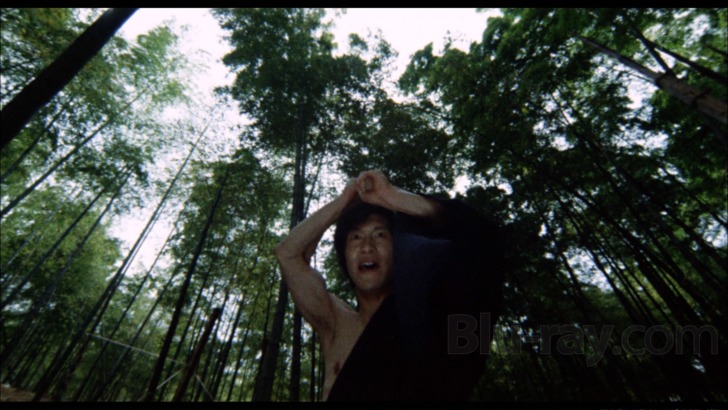
Note: The cover and literature for this release list the title as Mandala instead of Mandara, and so this review will follow that choice.
If This Transient Life could be seen as an example of what I called the "Heraclitean" aspects of Jiss˘ji, we arguably move much more firmly in to Marquis de Sade territory with regard to Mandala, a film which rather prominently features rape, torture and a sort of sexual slavery in its tale of two couples exploring their sexuality (which may hilariously remind some as it did me of Bob & Carol & Ted & Alice). Add that to a subplot that actually involved a de Sade like cult devoted to the hedonistic pleasures of the flesh, and you have some idea of the more graphic nature of this arresting if disturbing film. This was Jiss˘ji's first film in color, and he uses some beachside locations to good effect.
Mandala Blu-ray Movie, Video Quality 
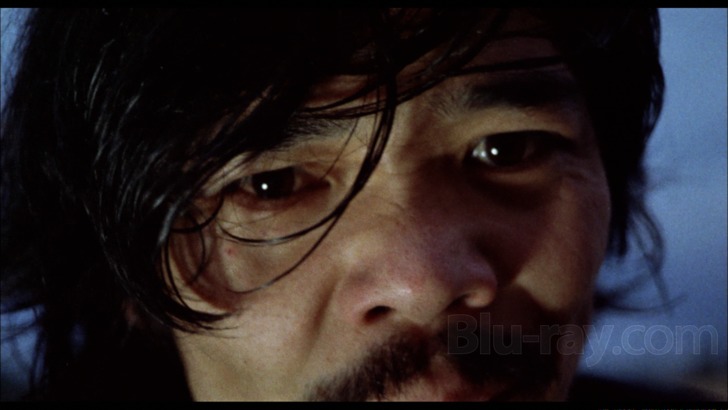
Mandala is presented on Blu-ray courtesy of Arrow Academy with an AVC encoded 1080p transfer in 1.85:1. Arrow really hasn't provided my technical information on the transfer, other than some generic verbiage that masters were provided by Toho and that addtional grading work was done by R3Store. This is one release where I frankly wouldn't have minded a bit more information on the provenance of whatever element or elements were used for this transfer, for this has some pretty wide variances in detail levels and (in particular) thickness of the grain field. The high contrast opening understandably doesn't offer much in the way of fine detail, with whites that come close to blooming, but the main part of the film often offers secure, more "normalized", contrast and a generally healthy looking palette, albeit one that is arguably a bit faded and brownish at times. However, there are pretty wide variances between scenes and even within scenes, with some of the bedroom and beach material almost resembling 16mm at times. At other moments, there's a much finer and better resolved grain field and clarity and detail levels improve. Interestingly, some of the interstitial black and white material doesn't have much noticeable grain at all, making it look more like video at times. There is some minor damage along the way, but nothing very distracting.
Mandala Blu-ray Movie, Audio Quality 
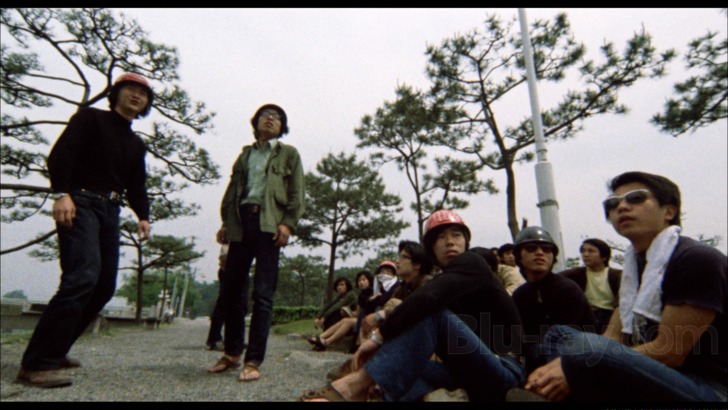
Mandala features an LPCM Mono track in the original Japanese. This has a somewhat boxy sound throughout, with a "dry" (i.e., little to no reverb or hall acoustics) sound permeating the dialogue in particular. Ambient environmental sounds in the many outdoor scenes are realistically rendered without any major issues.
Mandala Blu-ray Movie, Special Features and Extras 
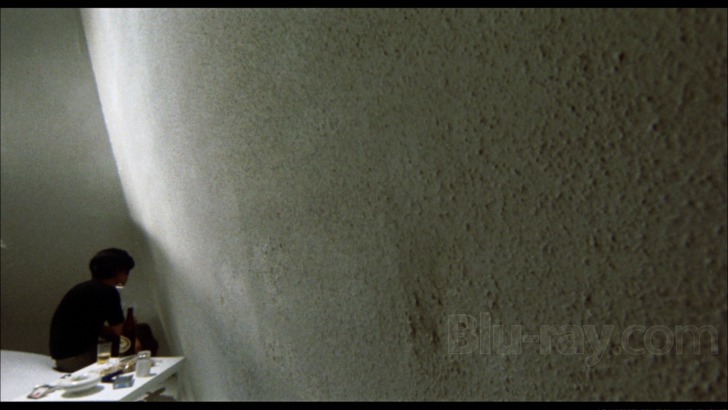
All three of the films in this set feature audio introductions (that play like commentaries to scenes from the film) and selected scene commentaries by David Desser. Kind of oddly, the selected scene commentaries have all been authored separately and there's no Play All option.
- Introduction by David Desser (1080p; 10:39)
- Selected Scene Commentaries feature 10 scenes.
- Theatrical Trailer (1080p; 2:36)
Mandala Blu-ray Movie, Overall Score and Recommendation 
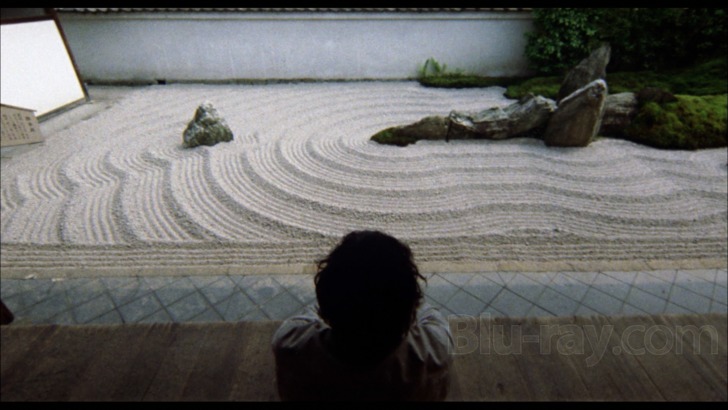
The treatment of women in this film in particular may raise some serious hackles in some viewers, and so this is probably not a film for those with more squeamish tendencies. Video has some fairly wide variances in general clarity and grain resolution, for those who are considering a purchase.
Similar titles
Similar titles you might also like
(Still not reliable for this title)

This Transient Life
無常 / Mujō
1970

Poem
Uta / 哥
1972

Heroic Purgatory
煉獄エロイカ
1970

The Conformist
Il Conformista | 4K Restoration
1970

Taxi
2015

Eros + Massacre
エロス+虐殺
1969

Before the Revolution
Prima della rivoluzione
1964

Diary of a Lost Girl
Tagebuch einer Verlorenen
1929

Aquarius
2016

Kameradschaft
Comradeship
1931

Zama
2017

The Flower of Evil
La fleur du mal | 4K Restoration
2003

The Image Book
Le livre d'image
2018

Things to Come
L'avenir
2016

The End of St. Petersburg
1927

I Fidanzati
1962

Goodbye to Language 3D
Adieu au langage
2014

Loveless
Нелюбовь / Nelyubov
2017

Christ Stopped at Eboli
Cristo si Ŕ fermato a Eboli / Full-Length Version
1979

Il Posto
1961